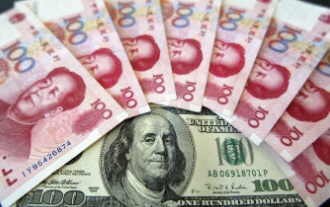In a matter of days the world will arrive at the sobering recognition of a humbling reality of our times — China is the only nation that can end the debt crisis sapping confidence in Europe and the U.S. and restore faster growth to the global economy.
Last week Premier Wen Jiabao spelled out the quid pro quo China wants in exchange for using some of its $3.2 trillion in foreign exchange reserves to buy enough Euro zone bonds to assure the world that Greece — as well as Portugal, Italy and Spain — are covered against default. China wants the EU to grant it market status ahead of the 2016 deadline.
Market status would give China’s exporters more unfettered access to what is already its biggest export market. In practical terms, the competitive disadvantage that accelerating China’s market status would impose on EU industries is minimal while lifting the crushing burden of doubt from all of Europe and the rest of the world.
The only real hurdle to that healthy quid pro quo is the EU leadership’s reluctance to see itself as being at the mercy of a nation it continues to see on several levels as a rival and a threat.
That bargain is only half of what China can do to end fears of a global double-dip recession hampering growth in Europe, the U.S. and the rest of the industrialized world. The other half is widening the band in which the yuan can freely trade.
It’s the single biggest move that China can make and one that would also solve its own economic nightmare — inflation running at 6.4 percent and 6.2 percent in July and August, respectively. For China that problem is nearly on the same scale as the 9.2% U.S. unemployment rate because it literally takes food out of the mouths of the 850 million Chinese who feel they’ve been left out of the nation’s newfound prosperity. Those 850 million can show their anger by wrecking a system that has created an emerging middle class of 500 million and destroy the basis for the regime’s continued grip on power.
By simply announcing that it will let the yuan fluctuate outside the 5-5.5% band it has sought to maintain, China would give a huge confidence boost to the economies of Europe, U.S. and other developed nations. Because the world sees China as the only major economy enjoying robust growth, and because of the market’s tendency to magnify the significance any show of confidence by the growth leader, the global economic boost would be out of all proportion to the actual direct impact of the move itself.
Such a move would make imported consumer goods — especially food and fuel — both cheaper and more abundant, giving a big shot to China’s efforts to promote consumer spending as the driver of its overall economy. In turn, the expectation of a surging Chinese consumer economy would prompt major U.S. and European corporations — flush with hoarded cash — to speed up investment in China while inspiring confidence among the consumers of developed economies. In turn, that confidence would boost demand for more goods from China’s exporters.
The overall impact of a widening of the yuan’s trading band would be precisely what Beijing keeps saying it wants — growth driven by more robust consumer consumption, not only in China, but the rest of the world.
The major obstacle to such a Prometheus-ian move is China’s longtime self-image as a poor, export-driven nation that scratched out prosperity by toiling to clothe fatcat western nations that keep giving it the cold shoulder. Yet it is only big beaux gestes like this one that can earn China a shiny new image among global powers.

